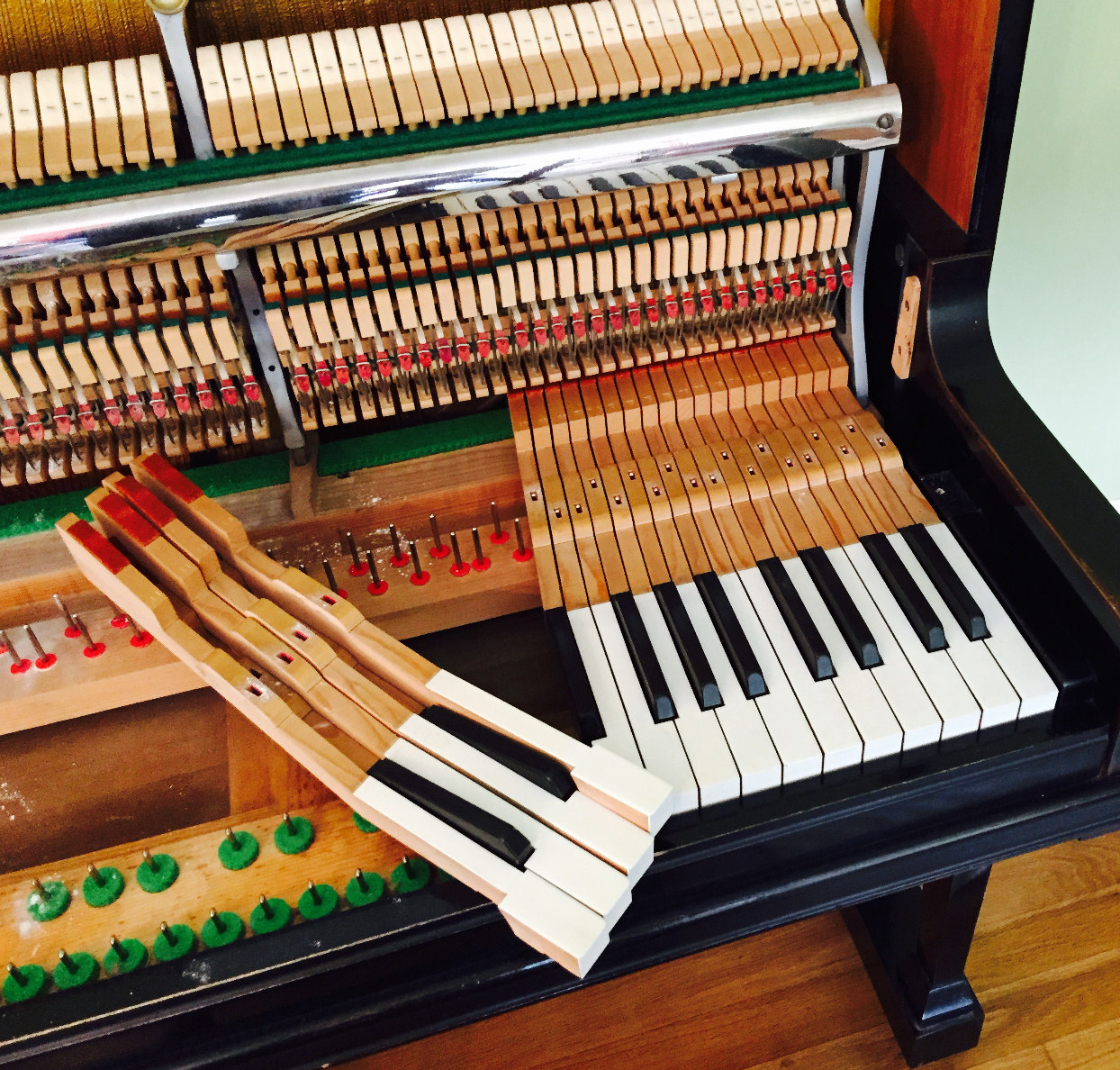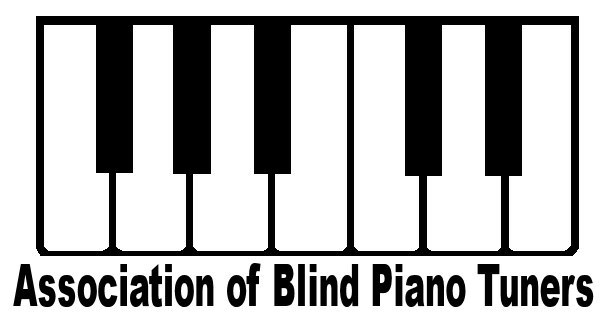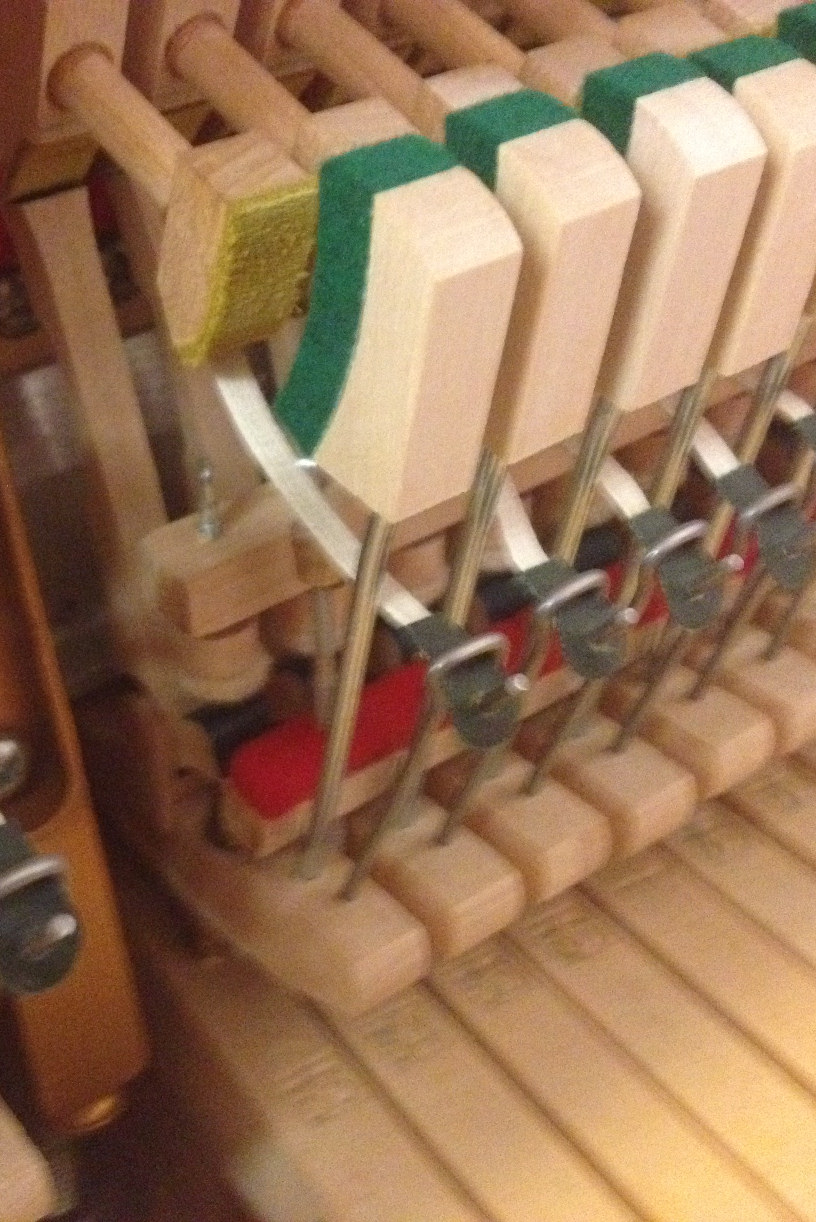How often should I have my piano tuned?
For example, if you play the piano in Sutton Coldfield several hours a day, and work to a performance standard, it is quite likely, that for your own piece of mind, and that of your listeners, you may need to have your instrument tuned frequently. This could be as often as once a week. But, experience can be a good guide. If you are a parent with a child in school who is learning to play the piano, routine maintenance becomes important. For, a student feels frustrated if clashing notes or poorly functioning and badly regulated action parts foils his or her attempts. We recommend for a family with a piano in general uses that the tuner visit no less than every 6 months. Often more frequent visits may be necessary this isn't out of the ordinary.
The piano is a highly developed, complicated piece of equipment. It contains approximately 240 different lengths of highly tensioned wire, with approximately 160 lbs. of pressure per string and a 15% increase in the bass. This produces an overall strain on the frame of about 21 tons. These lengths of wire go to make up 85 to 88 notes spread across the musical range. Each note has its own individual mechanism, the combined total of which in the case of an upright piano adds up to 14,000 moving parts. In the case of a grand the total reaches as high as 22,000 parts. the piano must be maintained at a specific tension to achieve a good musical sound, the matter of maintenance becomes an on-going process. A piano consists mainly of wood and iron, and both materials are subject to movement. The movement of the wooden soundboard and the frame causes the wires to change tension without prompting by the user. Thus, it becomes necessary to set up a minimal schedule of tuning of the instrument to ensure reliable and pleasing results. This schedule isn't a hard and fast one, but we can make recommendations and set out guidelines. Once a year is the minimum for most pianos. Most piano makers recommend twice a year and some three times a year.
Humidity and Temperature in Sutton Coldfield have a big effect on pianos staying in tune more so than playing. Quite a lot of homes in the months of November to April tend to have a humidity range from 38% 40% and from April to November 40% to 65% and some as low as 20%. This swing makes the soundboard swell and shrink this up and down movement pull and loosens the piano strings putting the piano out of tune. Pianos that are in rooms with the humidity below 38% for several months are causing the piano long-term damage.
Why maintain a piano in Sutton Coldfield?
The piano is a highly developed, complicated piece of equipment. It contains about 240 different lengths of highly tensioned wire. (Approx. 160lbs per note and a 15% increase in the bass giving you an overall strain on the frame of 21 tons approx.) These lengths of wire go to make up 85 to 88 notes spread across the musical range. Plus, for each note, there exists a mechanism, which in the case of an upright piano contains up to 14 different moving parts. In the case of a grand up to 22 per note.
What is the first step towards purchasing a piano
Purchasing a new or second-hand piano for you and your family can create a lifetime of pleasure and intellectual stimulation for you and the family. Before you spend any money on either a new or secondhand piano, a little preparation goes a long way so that you buy a piano that is appropriate for your needs.
The first step in choosing a piano involves establishing your musical needs, decor and size of room. Talk to your piano teacher and tuner. A piano will provide elegance, education and beauty to your home, You Need an instrument that will play properly and compliment your home's decor. Musically, you need to select a piano that has a touch plus a musical tone that you find pleasing.
The best way to accomplish this is to take your Tuner and visit a piano dealer. Find a dealer that has a large selection of new and used pianos at various prices. It is important that you sample a wide variety of pianos. When you play each piano, discover which piano has the touch most responsive to your fingers. Listen to many pianos to discover which tone is most desirable to you. You will also have an opportunity to view different styles and finish. You can select a piano that is fits into the decor in your home. Once you discover what you want to purchase, and have an idea of the cost,
Purchasing a piano?.
Where is it going to live? .Not in a conservatory or in direct sunlight.
Piano Jargon Explained.
Straight strung bass stringing is where the bass strings only impart vibrations to a vertical area on the left side of a piano and the stringing is shorter in length making for a thinner sound.
Overstrung is.Where the Bass strings go diagonally from top left to bottom right of the piano.Imparting string vibration to the sound board Making for a better tone than its former straight strung pianos.
Overdamped Mechanism inferior to say post 1920 pianos (with exceptions). Underdamped Mechanism unsustaining notes is superior.
Before purchasing a piano,always get advice from a Piano tuner or Teacher as to its fitness for purpose.Aim to get one that is modern, newer is better than old.A pretty inlaid piano with candlesticks needs very careful vetting and is most likely to be straight strung and overdamped. Visit a piano dealer that has a large selection of new and used pianos in order to see just what is available and your likely outlay. When you play each piano listen to the tone and feel the touch both are important, each note should play and sound when the same pressure is applied to it. your tuner or teacher will advise you on the pitch the piano is tuned to which must be at or near A440 htz. As an investment consider that most pianos costing £ 60 70 years ago may fetch 4 times that to day.
Buying a grand piano Very nice but needs a lot of space.A totally different feel when playing the keys and generally a big sound. A baby grand is sometimes considered a compromise in sound but has a good touch.
Buying a Upright pianos comes in many sizes and styles .it could be argued that a bigger tall upright is better in sound than a baby grand. My recommendation is Find the piano you could live with







